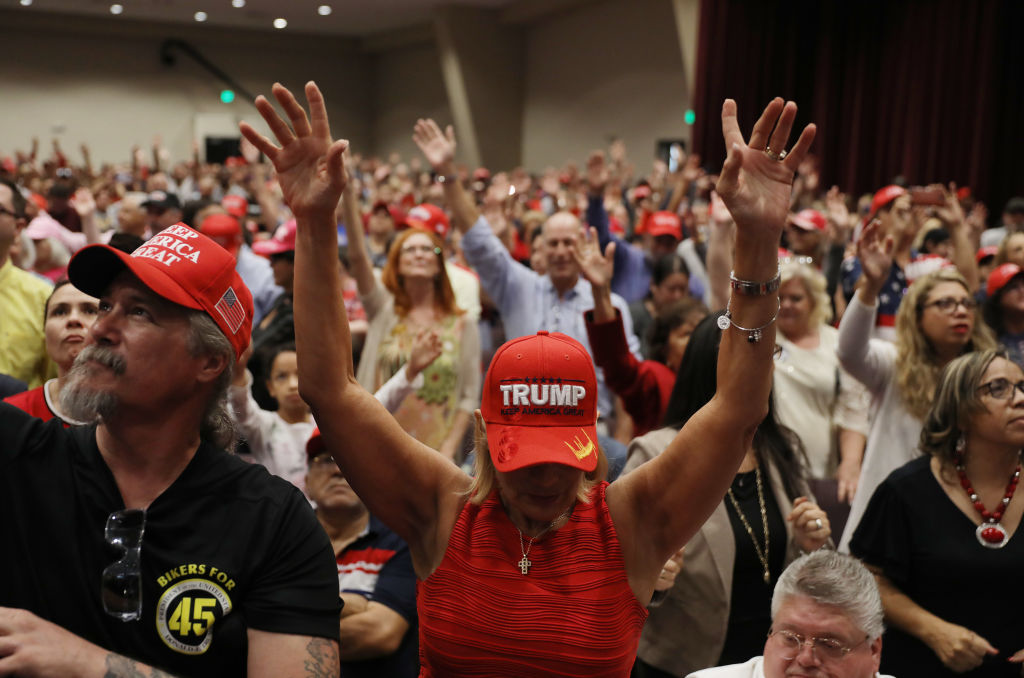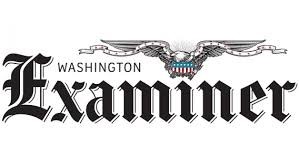Newsletter October 5, 2023
The Rise of Republican Churches

For more than two decades, sociologists have recognized that politics has contributed to America’s religious decline. Liberal confidence in organized religion plummeted as the Christian Right’s political priorities became ascendant. Younger Americans raised in religious homes left over negative treatment of gay and lesbian people. The disappearance of liberal and moderate worshippers has transformed American churches, especially those with predominantly white congregations.
White Christians, especially white evangelicals, have become overwhelmingly Republican. (Believe it or not, in 2007 only 50 percent of white evangelicals were Republican.) The transition has occurred with surprising rapidity. Gallup surveys show that three-quarters of white Americans who attend religious services weekly or more often now identify as Republican or lean towards the Republican Party. Democrats make up just one in five weekly attenders, a remarkable shift. Even as American Christianity grows more racially and ethnically diverse, it is increasingly a Republican-dominated institution.
This story has been told before. I’ve played a small role in helping tell it. But there is another side that has only recently received attention. More conservatives are looking for religious communities that also affirm their political beliefs. New research by Shay Hafner and Audre Audette found that politics has become a more salient consideration for conservatives when choosing a church. The authors point out that political considerations are especially important for evangelical Christians who are less concerned with denominational differences and more comfortable with overt political appeals.
These findings are consistent with recent polling. A 2022 Lifeway Research survey of Protestants noted the growing appeal of politically homogeneous congregations. Fifty percent of Protestants interviewed said they preferred that their congregation reflect their own political views while 41 percent disagreed, a modest increase from a few years earlier.
The salience of politics in religious communities is likely to grow given that such issues are more of a priority for younger worshippers. Lifeway’s report notes, “Younger churchgoers are more likely than older ones to prefer sharing a pew with someone of the same politics. Almost 3 in 5 of those under 50 (57%) want a congregation with people who share their political views, compared to 47% of those 50 to 65 and 41% of those 65 and older.”
The problem of politicized churches is obvious. It represents a clear challenge to the political system. The regular use of apocalyptic language in political arguments discourages compromise and reduces the possibility of finding consensus. Even if churches have been historically segregated by race and ethnicity, they have long been places where people of differing economic and political backgrounds could come together.
Politically polarized worship spaces represent a societal loss as well. Religious institutions are incredibly valuable sources of social capital. They give purpose, direction, and meaning and connect their members to a wider world. At a time when more Americans are withdrawing from civic life, religious communities are more valuable than ever. What’s more, adopting an aggressive political posture overshadows all the other work that congregations do for their communities and the people in them.
For churches, prioritizing politics can pay dividends in the short term but prove ultimately self-defeating. A church that excuses the ethical failings of certain politicians compromises its own moral authority. It also reduces demand. Writing with Christopher Weaver, Audette argues that highly politicized churches can keep certain members engaged, but in doing so they are “doubling down on the very practices that are shrinking the market.”
Liberals and moderates will find little value in religious communities that prioritize conservative politics. Liberal dissatisfaction with organized religion has never been higher: 81 percent of liberals report having little or no confidence in religious leaders. This feeling of distrust is evident among religious and secular liberals alike. It will almost certainly harden opposition to religion’s role in public life. Over a decade of research on the preferences and priorities of nonreligious Americans has revealed growing hostility towards organized religion. A new poll from the Associated Press bears this out.
Unfortunately, many conservative Christians and church leaders find this argument unconvincing. This is the conclusion that Atlantic reporter Tim Alberta reached after interviewing evangelical leaders from across the country. He writes:
More people will leave churches that refuse to identify with a tribe and will find pastors who confirm their own partisan views. The erosion of confidence in the institution of American Christianity will accelerate. The caricature of evangelicals will get uglier. And the actual work of evangelizing will get much, much harder.
Recently, Washington Post columnist Perry Bacon wrote about his religious journey and expressed his desire to find a spiritual community. His sentiment struck a chord, eliciting nearly six thousand comments. But in the end, Perry is not upbeat about the chances he will find such a community. It’s difficult not to share his pessimism.








